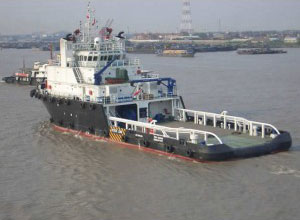BLOG
Top 7 Japanese Shipyards: A Comprehensive Guide
Japan has long been recognized as a leader in shipbuilding, known for its high-quality craftsmanship and advanced technology. In this article, we will explore the top seven Japanese shipyards, highlighting their specialties and contributions to the maritime industry.
Why Japan is a Leader in Shipbuilding
Japan’s shipbuilding industry is characterized by its innovative technology, skilled workforce, and stringent quality control measures. Japanese shipyards have earned a reputation for producing a wide range of vessels, from commercial ships to specialized marine engineering solutions.
Key Factors Contributing to Japan’s Shipbuilding Success:
- Advanced Technology: Japan invests heavily in research and development, resulting in cutting-edge shipbuilding technologies.
- Skilled Workforce: A tradition of craftsmanship and a highly trained workforce contribute to superior quality.
- Environmental Regulations: Japanese shipyards are at the forefront of sustainable practices, creating eco-friendly vessels that meet international standards.
Top 7 Japanese Shipyards
1. Mitsubishi Heavy Industries, Ltd.
Location: Nagasaki
Specialties:
- Container ships
- Bulk carriers
- Warships
Overview: Mitsubishi Heavy Industries is one of Japan’s largest shipbuilding companies, known for its diverse portfolio that includes commercial and military vessels. With a commitment to innovation, Mitsubishi continuously develops advanced technologies to improve ship performance and efficiency.
2. Kawasaki Heavy Industries, Ltd.
Location: Kobe
Specialties:
- Liquefied natural gas (LNG) carriers
- Ferries
- Submarines
Overview: Kawasaki Heavy Industries is renowned for its high-tech shipbuilding capabilities, particularly in the construction of LNG carriers. The company emphasizes safety and environmental protection in its designs, contributing to its strong market position.
3. Sumitomo Heavy Industries, Ltd.
Location: Tokushima
Specialties:
- Cargo ships
- Tankers
- Specialized vessels
Overview: Sumitomo Heavy Industries focuses on producing a variety of vessels, including oil tankers and specialized ships. The company prides itself on its engineering expertise and commitment to delivering high-quality products.
4. Japan Marine United Corporation (JMU)
Location: Yokohama
Specialties:
- Cruise ships
- Bulk carriers
- Fishing vessels
Overview: Japan Marine United Corporation is a major player in the shipbuilding industry, known for its large-scale ship construction capabilities. JMU is particularly recognized for its luxurious cruise ships and technologically advanced fishing vessels.
5. Imabari Shipbuilding Co., Ltd.
Location: Imabari
Specialties:
- Tankers
- Bulk carriers
- Container ships
Overview: Imabari Shipbuilding is the largest shipbuilder in Japan, focusing on various types of vessels, including tankers and bulk carriers. The company’s dedication to quality and customer satisfaction has solidified its status as a leader in the industry.
6. Oshima Shipbuilding Co., Ltd.
Location: Saikai
Specialties:
- Bulk carriers
- Car carriers
- Fishing vessels
Overview: Oshima Shipbuilding specializes in the construction of bulk carriers and car carriers. The shipyard emphasizes environmentally friendly practices and has received numerous awards for its innovative designs.
7. Yokohama Shipyard Co., Ltd.
Location: Yokohama
Specialties:
- Container ships
- Offshore vessels
- Tugboats
Overview: Yokohama Shipyard is known for its versatility, producing a wide range of vessels from container ships to tugboats. The company has invested in modernization and sustainability, positioning itself for future growth in the maritime sector.
Conclusion
Japanese shipyards continue to lead the global shipbuilding industry through innovation, quality, and environmental stewardship. From large-scale container ships to specialized vessels, these shipyards have demonstrated their ability to meet diverse maritime needs.
Frequently Asked Questions (FAQs)
1. What types of vessels do Japanese shipyards specialize in?
Japanese shipyards specialize in a wide variety of vessels, including container ships, bulk carriers, tankers, passenger ships, and specialized marine vessels.
2. Why is Japan a leader in shipbuilding?
Japan’s shipbuilding industry benefits from advanced technology, a skilled workforce, and strict quality control measures, contributing to its global leadership.
3. How do Japanese shipyards prioritize sustainability?
Many Japanese shipyards focus on eco-friendly practices, developing ships that meet environmental regulations and promote sustainability in maritime operations.
Summary Table of the Top 7 Japanese Shipyards
| Shipyard Name | Location | Specialties |
|---|---|---|
| Mitsubishi Heavy Industries | Nagasaki | Container ships, bulk carriers, warships |
| Kawasaki Heavy Industries | Kobe | LNG carriers, ferries, submarines |
| Sumitomo Heavy Industries | Tokushima | Cargo ships, tankers, specialized vessels |
| Japan Marine United Corporation | Yokohama | Cruise ships, bulk carriers, fishing vessels |
| Imabari Shipbuilding Co., Ltd. | Imabari | Tankers, bulk carriers, container ships |
| Oshima Shipbuilding Co., Ltd. | Saikai | Bulk carriers, car carriers, fishing vessels |
| Yokohama Shipyard Co., Ltd. | Yokohama | Container ships, offshore vessels, tugboats |
For any maritime needs, consider the exceptional craftsmanship and innovative designs that these top Japanese shipyards offer. If you’re looking for quality vessels or shipbuilding solutions, Peida Machinery Group Co., Ltd. is also a great option. Located in China’s Yangtze River region, Peida specializes in various types of ships, including tugboats, oil tankers, and passenger ships. They provide professional design, construction, and trade services, ensuring customer satisfaction and meeting all maritime needs.
BLOG
News
Contact Us
Contact: Peida Machinery Group Co. ,Ltd.
E-mail: info@peidaship.com
Tel: 0086 0556 5248992
Phone: 008618855615637
Add: City Anqing, Anhui Province
